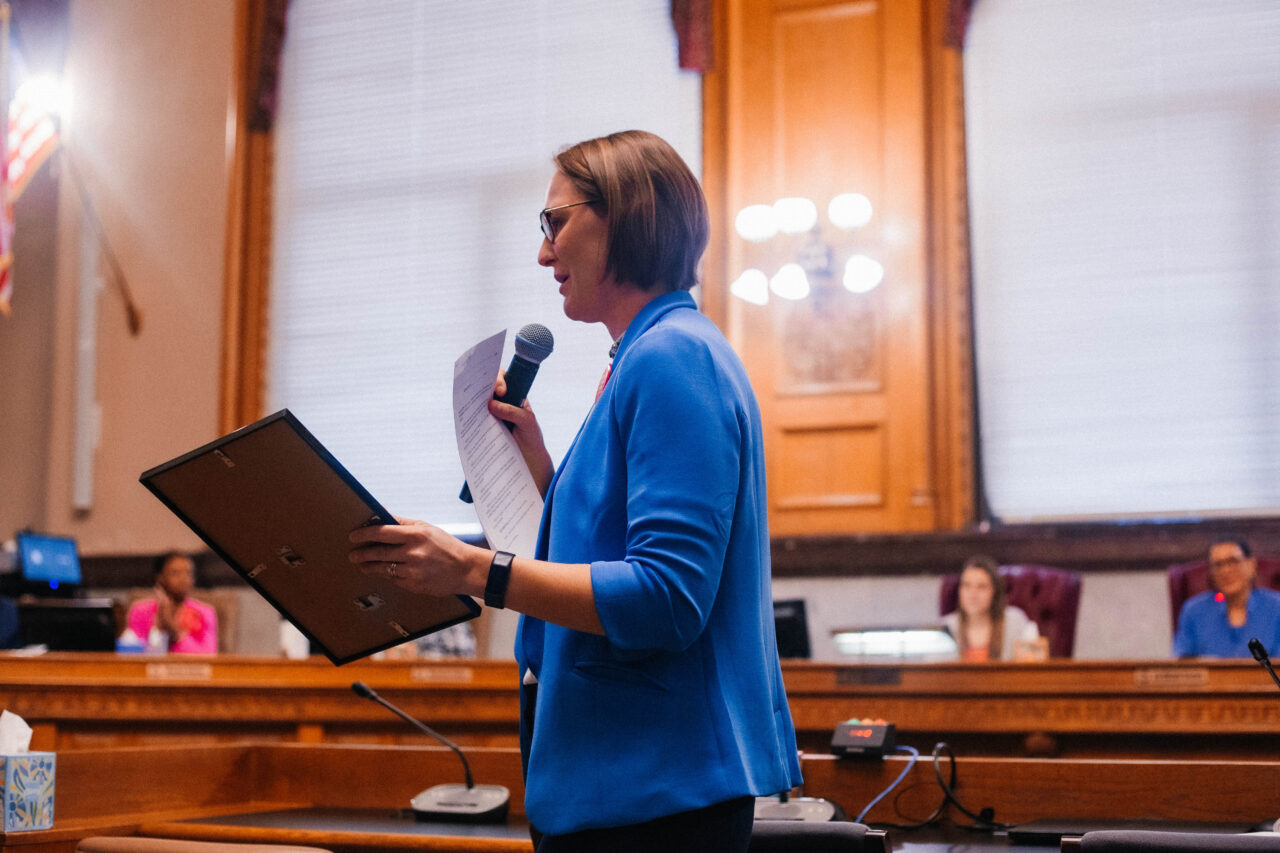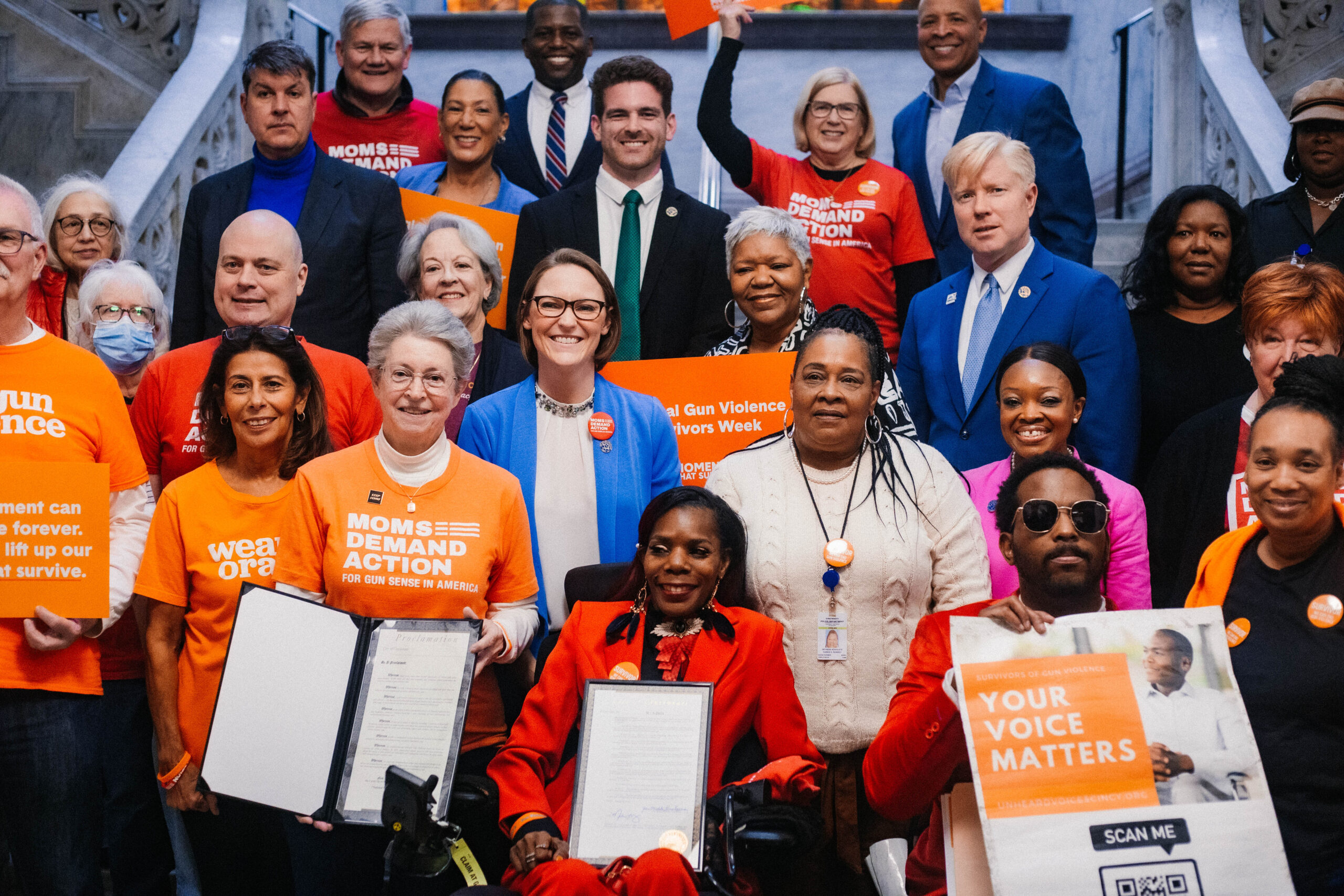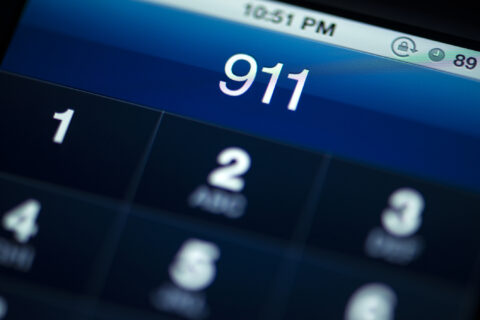By City of Cincinnati Councilmember Anna Albi
One hundred and twenty people.
That’s how many are shot and killed each day in America, along with an additional 200 who are wounded. In 2023, nearly 400 people were shot in Cincinnati. These numbers are completely heartbreaking. These tragic numbers only tell a partial story, however, as countless others experience the collective trauma associated with gun violence.
In recognition of this collective trauma, we are joining with cities around the country in recognizing the sixth annual National Gun Violence Survivors Week, a time when we’re invited to amplify the stories and voices of gun violence survivors who live with the impact of gun violence every day of the year. Survivors include not only those who have been personally injured but also those who have witnessed an act of gun violence, been threatened by a gun, or had someone they care about wounded or killed with a gun (including firearm suicide).
As we create space to recognize the deep impact that gun violence has on our communities, as city leaders, we also should take time to explore the broad range of policy solutions at our disposal to tackle this complex challenge. Gun violence is often the last domino to fall and is preceded by a host of structural factors, including generational poverty, lack of access to healthy food, inadequate housing and the physical design of our urban spaces. While Cincinnati, along with many other cities, is preempted by the state from passing many commonsense laws regulating guns directly, we can tackle these systemic issues to make our community safer.
One such approach is called Crime Prevention Through Environmental Design (CPTED), which focuses on improving the built environment within our city to make it safer. In Cincinnati, our police department recognizes the importance of physical spaces through its Place Based Investigations of Violent Offender Territories (PIVOT) program, which targets specific places with chronic violence to disrupt patterns and deter future crime.
Cincinnati also empowers residents to take action through our Safe and Clean Fund, which awards grants for neighborhood projects aiming to improve the environment by adding features such as lighting, security cameras, landscaping, murals, public art, water fixtures, community gardens, and more.
Finally, mental health support must be a central component of a city’s strategic response to gun violence prevention. This support is important to offer both to gun violence survivors to help them process their trauma and also to engage with those at risk of perpetrating violence. Our police department implemented the Alternative Response to Crisis program that deploys behavioral health specialists to de-escalate low-risk crises and provide targeted and appropriate care. Community partners have also compiled a Greater Cincinnati Black Indigenous People of Color (BIPOC) Mental & Behavioral Health Provider Directory to showcase the diverse range of care that local residents can access.
Our cities are increasingly turning into communities of gun violence survivors. As local leaders, it is imperative that we both address the trauma that current residents have experienced, through acknowledging events such as National Gun Violence Survivor Week, while also working hard to pursue a broad range of policy initiatives that decrease future gun violence from occurring.







